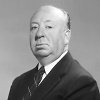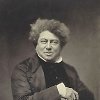Quote of the day
The [Nobel ]prize is such an extraordinary honor. It might seem unfair, however, to reward a person for having so much pleasure over the years, asking the maize plant to solve specific problems and then watching its responses.
Neil Fligstein

Born: May 23, 1951 (age 74)
Bio: Neil Fligstein is an American sociologist, and Professor at the University of California, Berkeley, known for his work in economic sociology, political sociology and organizational theory. He has produced both empirical and theoretical works.
Known for:
- A Theory of Fields (2012)
- The Architecture of Markets (2001)
- The transformation of corporate control (1990)



















